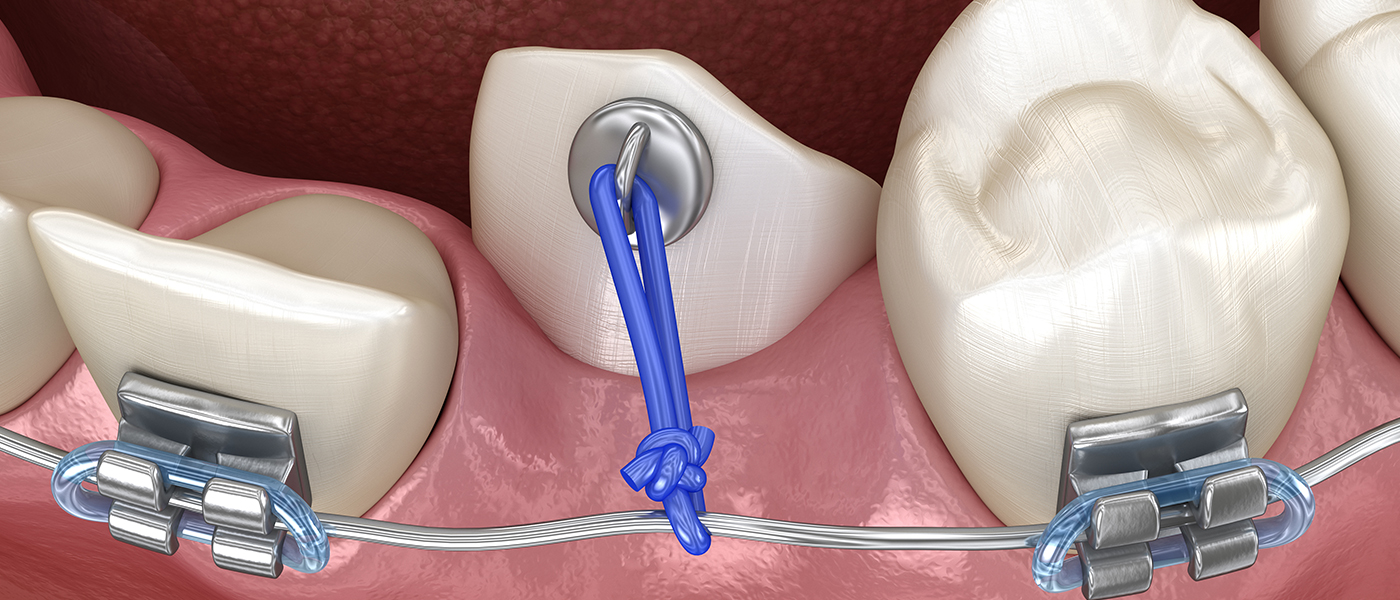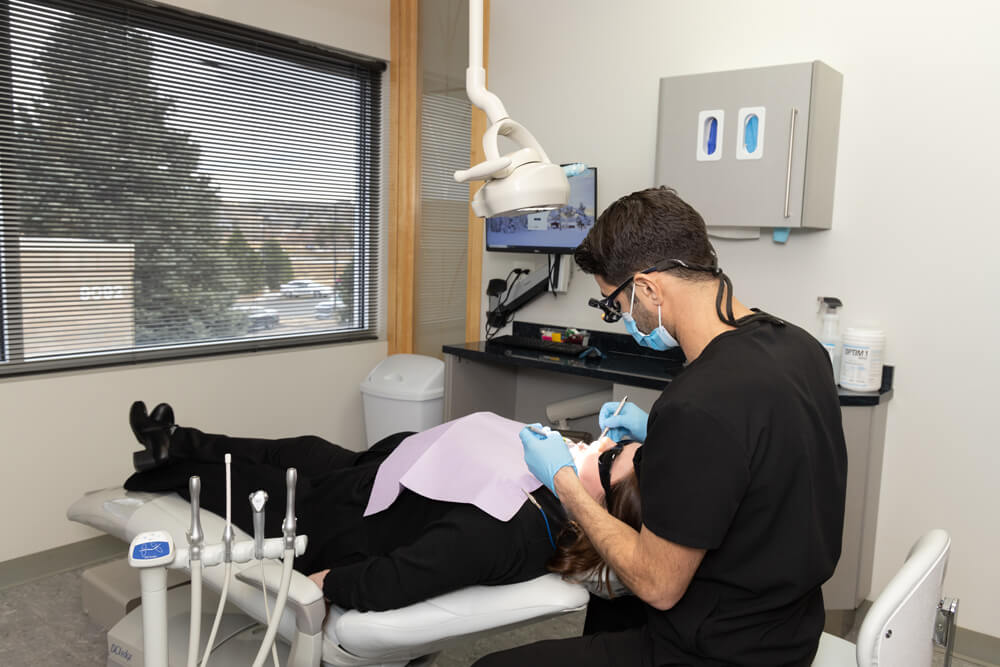Canine Exposure

Impacted canine teeth occur when the teeth have been preventing from erupting correctly by fibrous tissue, bone, or another tooth. Upper canine teeth are among the last to come in, meaning that they are at a higher risk of becoming impacted and failing to reach their correct position in the upper jaw.
Around 2% of the population will suffer from impacted upper canines, usually only affecting one side of the mouth. Most of these become impacted towards the palate (the roof of your mouth), but some with impact towards the cheek instead.
Why Canine Impaction Occurs
There are many reasons why canine impaction can occur. Most commonly, impaction happens due to a shortage of space in the mouth, which causes a degree of crowding in the jaw. In some cases, there may be a genetic component, meaning that canine impaction can occur if it’s happened to a member of your family in the past.
If left untreated, cystic lesions may begin to develop around the crown of the canine tooth. This lesion may become infected, damaging the roots of the surrounding teeth.
Exposing Impacted Canine Teeth
X-Ray images will first be taken to locate the exact position of the affected canine. This X-Ray will serve as a roadmap, helping to guide our periodontists and show them what to expect.
During surgery, the overlying gum tissue is surgically lifted away from the tooth and any necessary soft tissue and/or bone removal is performed to adequately expose the canine tooth. Dissolvable stitches are then used to put the raised gum tissue back in place. Healing packs will then be placed on top of the exposed tooth. The pack and any remaining stitches will be removed at your one-week post-surgical appointment in our office.
The length of the surgery will depend on the position of the impacted tooth and whether or not you have chosen local anesthetic or intravenous sedation. An appointment for impaction surgery under local anesthetic is typically scheduled for around an hour. If intravenous sedation is used, it may last around 90 minutes.
There may be some swelling, bruising, and discomfort around the surgical site in the days after. This will usually resolve itself after 10-14 days.
If you are suffering from impacted canine teeth, please contact Highlands Ranch Periodontics to schedule an evaluation today! Our periodontal office is located in beautiful Highlands Ranch, Colorado, but we also serve patients from the surrounding areas including Southglenn, Wolhurst, Lone Tree, Centennial, and Columbine, Colorado.

